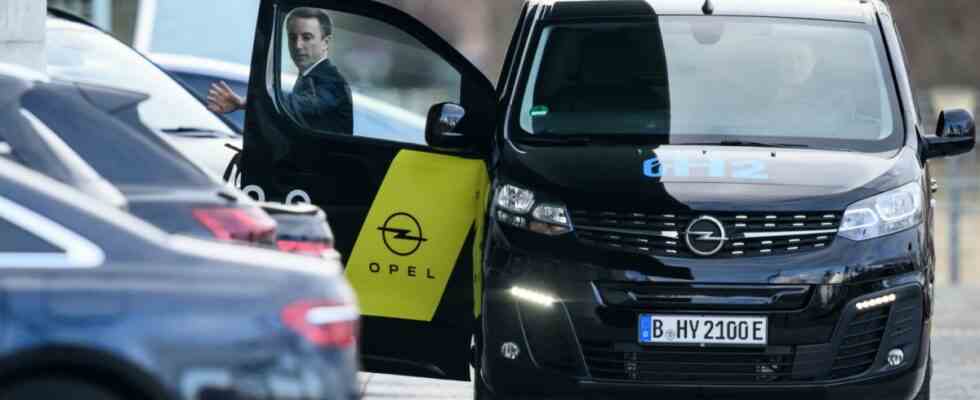It is unusual for a chancellor-level industry meeting to have no result, but most are somehow satisfied. But that’s how it is this Tuesday at the mobility summit in Berlin. Chancellor Olaf Scholz (SPD) and half his cabinet spoke for two hours with representatives of the mobility industry, which means above all: with representatives of the car industry. There is no resolution paper afterwards – and yet there is relief among many participants: At least we have finally spoken to each other again in this top-class format, we have finally exchanged ideas about problems and challenges. Because they have become even more numerous in Germany’s leading industry compared to the last car summit, which the then Chancellor Merkel had organized in times of epidemics.
The current list of participants already shows a bit how the world has changed: One of the 39 participants in the Chancellery is Andre Thierig, the manager of the Tesla plant in Grünheide, which opened only nine months ago. This leads to one of the questions that the domestic industry has: how to react to the economic policies of the US and China? The states are supporting their own car companies more and more openly, for example with subsidies, and these companies are also growing into ever stronger competition for this reason? How do you actually get a total of 15 million electric cars on the road in Germany by 2030 in order to improve the climate as planned? How is that supposed to work when the fight for raw materials is getting tougher and electricity remains scarce and therefore expensive? How can mobility remain affordable for everyone and how can traffic flow better?
The federal government still has no answer to many questions. Perhaps the war in Ukraine also prevented what many had actually expected when the traffic light government took office: there is no overarching mobility concept. But maybe it is also due to the opposing ideas of the parties: here the Greens with electromobility and the desire for speed limits, represented by Economics Minister Robert Habeck (Greens), for example. There the FDP with free travel for free citizens and Federal Transport Minister Volker Wissing (FDP).
It is now up to Chancellor Scholz to bring politics and the mobility industry together. And because it is the first meeting of this kind since taking office, the government has lowered expectations: it says there is an opportunity for discussion. In addition to Scholz, Habeck and Wissing, Finance Minister Christian Lindner (FDP) and Environment Minister Steffi Lemke (Environment) were also on the list of politicians and listened to the numerous problems that exist. Except for the Tesla representative, the first group came from the economy, the German car bosses. In addition, trade union officials, above all IG Metall boss Jörg Hofmann, who also insisted that Germany and Europe needed a new industrial policy. Representatives of important think tanks and large associations were also invited: For example Agora Verkehrswende, which calls for a tax reform to finally make combustion engines less attractive; or the ADAC, which has now also established that less car traffic is needed.
The meeting follows the line of the traffic light coalition that, after last year’s crisis response, the long-term restructuring of the economy away from fossil energies and towards more climate protection should now be tackled. The transport sector still has the greatest pent-up demand – and a very crucial role. In the government coalition, the pressure on the sector and the responsible Minister Wissing to do more for climate protection is growing.
The Greens in particular are increasing the pressure. “It’s good that the federal government is holding a mobility summit, because climate protection in the transport sector is at a standstill in far too many places,” says Green Party leader Katharina Dröge. The automakers suspect that the pressure to change this year could be even greater. “In order to achieve the climate goals, the transport sector must finally make its fair contribution.” This requires courageous steps and clear priorities, not only from industry but also from politics. Dröge calls for an acceleration of planning for the bridge renovation and the expansion of the rail infrastructure as well as more speed in the expansion of the charging station infrastructure for e-cars.

